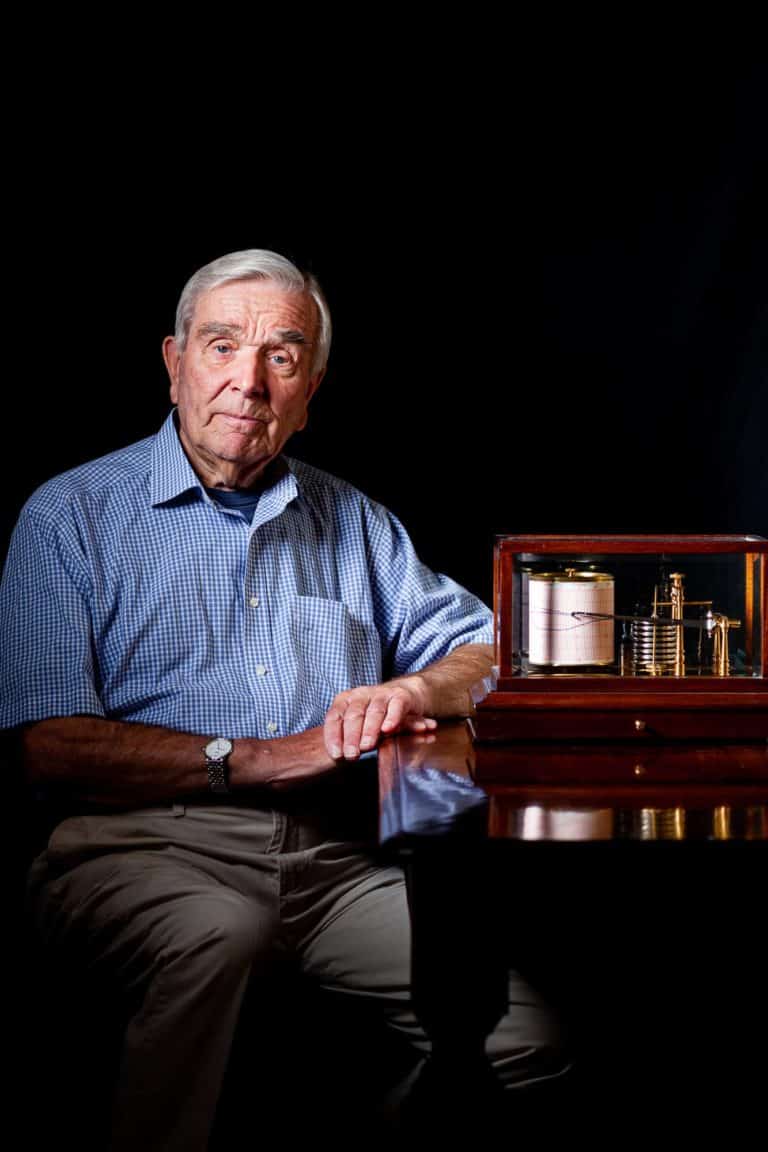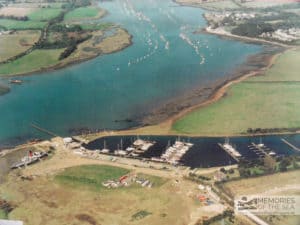Henry Wrigley on Harbours
The fun of the job was, no day was the same. Absolutely, but I’ll try and do a typical day. First thing I’d do, I’d look out of my bedroom window to see how the wind was blowing, what direction and what force.
Armed with this basic bit of knowledge, no doubt the forecast from the nice lady on Southern Television the night before, you do ascertain the sort of works which the men can undertake in sensible conditions, so we establish the work programs.
Then, check out with the Shipping Agents, movements of commercial ships due on sailing, arrange the Pilotage if it was required.
Not all ships require Pilots these days. Some ships the Masters and Chief Officers can take what is called a Pilotage Exemption Certificate, but why Cowes, the Masters like to come to Cowes, because we’re a small Port and it gave them an understanding of the control of movement of shipping in the interests of their safety of their passage in and out of the Harbour. That is one of the factors.
By tradition, and indeed by Law now, when you board a ship as a Pilot, you have to have a Pilotage Plan and show to the Master and his Navigating Officer depending on what sort of ship it is, and if they approve, by tradition the Pilot gets on with it. With the Master breathing heavily on one side and his Navigating Officer breathing heavily the other side. Good.
The Master knows his ship better than anybody, but you bring the ship in and you handle the ship because you know the local circumstances. You know the movement of the tide, you know the strength of the tide, you know the depth of water under the keel, all those sorts of things.
Now, the poor old Master can’t be expected to know all the hundreds of Ports that he goes to. He’s got a jolly good idea because he studies the charts, of course he does. Oh, the other thing I had to do as Harbour Master. I had to examine Skippers of small little passenger ferry boats and all the rest of it, for their Pilotage Exemption Certificates. Things like that.
So, back into the Office. Oh dear, the European Union had a habit of sending many directives to the Port industry. I used to be able to handle two or three, but I daren’t tell you how many came our way. However, we did the best we can.
In other words, there was a lot of administration work and we were very lucky. I had a couple of Secretaries; I had a Deputy Harbour Master.
I gave him the difficult task, ‘cos it’s almost like a job in itself, all the legislation appertaining to the carriage of dangerous goods, things of that nature, Health and Safety things at work, with your Workshops and your men ‘cos we had quite a few employees doing the Harbour maintenance work.
Back to this poor old Harbour Master. He would no doubt be working out major maintenance jobs or improvements to the Harbour which meant discussing contractual agreements with Companies etc, things of that nature.
Also, it was the sort of job … when I retired my wife insisted the telephone was taken away from the bedroom because the telephone would go anytime, and if it went after say … I mean you would never phone your friends or anyone after say 9 o’clock in the evening, well eight thirty, but if the telephone went after 9 o’clock, I knew it was either the Police, Shipping Agents, Customs, even a ship in the English Channel adjusting his estimated time of arrival either at the Needles or down by the New Grounds Buoy, requiring Pilotage and all this, so in other words you were 24 hours on call. Fine, I loved it, it was just part of it and that sort of thing, so yes, it’s quite busy.







